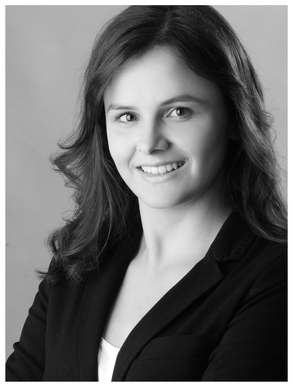PhD Projects
Claudia Steigerwald

Portrait
Claudia Steigerwald has recently submitted her PhD thesis at Zeppelin University, Friedrichshafen, Germany. Her research deals with the importance of strategic argumentation in German cultural policy, focusing on the topic of kulturelle Bildung (cultural education). Before, she worked on a project about the development of an institutional model for the qualitative evaluation of arts education in all-day schools at the non-profit organisation ›Rat für Kulturelle Bildung‹ (Council for Arts Education) in Essen. She holds an MA in Cultural Sciences from Luneburg University.
Doctoral Thesis
The Policy of Arts Education. Culture as means of education since the „New Cultural Policy“.
The concept ›kulturelle Bildung‹ (cultural education) serves as an integral part of public funding by the German Federation, Länder and local authorities, funding programmes by foundations as well as education departments in cultural institutions: ›Kulturelle Bildung‹ is supposed not only to contribute to the personal development of children and adolescents, but also to foster social cohesion, facilitate the integration of migrants and refugees, and provide a younger audience for cultural institutions. While the effects of these measures have been only sparsely researched, ›kulturelle Bildung‹ continues to attract further subsidies. The concept’s success can be understood firstly due to the shifts inside the landscape of cultural policy which has developed into the direction of triangulated action between state, market and civil society. Through this, policy discourse gains importance, as the role of culture in society is highly disputed in policy slogans, policy papers and funding criteria. However, the concept’s long tradition in policy and academic discourse is hardly present in discussions nowadays.
The research contributes to a historical understanding of the concept, coined as a key task by the so-called ›Neue Kulturpolitik‹ (New Cultural Policy) in the 1970s in their plea for an understanding of cultural policy as social policy. It shows how, in the 1980s, the ›Neue Kulturpädagogik‹ (New Cultural Pedagogy) fostered the establishment of ›kulturelle Bildung‹ as a professional field and academic discipline. Furthermore, the research investigates the current landscape of actors in the field of ›kulturelle Bildung‹ concerning their arguments and motivations, and asks what arguments are referred to and which societal developments and political events serve as a trigger in policy discourse. Through the method of argumentative discourse analysis and the adoption of sensitizing concepts from public policy analysis, the research investigates the strategic use of language in the actor’s arguments and elucidates distinctive narrator positions as well as their relations towards another.

